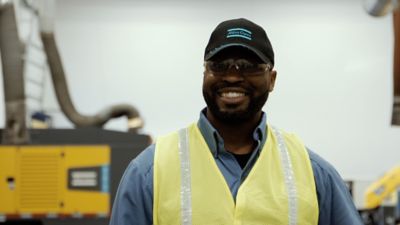Industry Focuses
Food and Beverage
The Food and Beverage industry relies on oil-free air, so our low-pressure technologies are well-equipped to pneumatically convey raw materials, from the start to the finish; they're also involved in product offloading. Food companies use oil-free air to pneumatically convey food ingredients, such as powdered milk and cocoa powder, from incoming tank trucks into the silos for temporary storage. By using oil-free air they can avoid oil contaminant mixing with the powder and maintain its purity. This also prevents the potential for oil collecting on machines where equipment used in these areas, such as robotics arms.
Pharmaceuticals
Guaranteed oil-free air is essential in the pharmaceutical industry, given that there is a 0% tolerance for contamination. This makes oil-free low-pressure blowers ideal for pneumatically conveying all types of pharmaceutical materials, including capsules, tablets, and powders.
Cement
Oil-free blower technology is employed to transport cement through various points in the manufacturing processing, such as conveying the materials into and out of the kiln; bagging the end product; moving the cement onto trucks, bulk containers, and rail cars; and sea transportation for final transport.
Airlift vertical systems are a specific type of conveying method and are designed for the vertical transport of bulk solids. They consist of a pneumatic elevator capable of conveying dry pulverized materials through a vertical pipe to discharge into receivers or bins at a substantially higher level.
Vacuum (negative) pneumatic conveying systems are generally employed for transporting material from multiple sources such as storage vessels, process equipment, trucks and railcars, to individual or multiple destinations. Unlike positive pressure systems, vacuum systems allow easy pick‐up of materials from open containers using wands, and do not impart heat to the material.
Mining
Mining relies heavily on low-pressure technologies in the following ways:
Heap Leaching, which is a chemical process that dissolves the mineral from the ore. Low pressure air is blown through the leaching pad to enhance the process.
Flotation Cells, also referred to as “froth flotation,” is used in the processing of gold, platinum, copper, chrome, lead, zinc and aluminum to help separate the minerals from the slurry. A steady stream of low pressure air is required to create the froth in this process.
Wastewater treatment, as wastewater from mining processes and from the surrounding camps is treated before being introduced back into the environment. Because mines are often located in remote locations with limited access to water sources, 24/7 wastewater treatment cannot be compromised due to equipment malfunction or failure.




